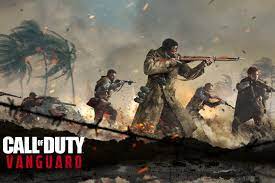
Most people think of luck when they think about casino games. The pull of a slot lever, the flip of a card, or a spin of the roulette wheel are all random events. The obvious exception, however, is poker. Poker is more about how you play the game than the hand you’re dealt, in contrast to most other games played on the casino floor. Poker is considered to be the most strategic casino game in existence because of its deep psychological warfare, mathematical precision, and long-term decision-making at its foundation.
Players consistently use strategies to outsmart opponents and win hands in everything from low-stakes home games to high-stakes tournament tables. What sets poker apart from all the other casino games is this complex balancing act between psychology and ability.
Poker players rely on a strategy toolkit that goes much beyond luck, just like “football predictions 24/7” uses data, patterns, and analysis to generate precise predictions.
What’s the Difference Between Poker and Other Casino Games?
You must first contrast poker with its casino brethren, such as baccarat, roulette, blackjack, and craps, in order to see what makes it special.
Games of Chance
Most casino games are either entirely dependent on chance or offer no opportunity for strategy. For example, slot machines don’t require any talent at all. Your fate is decided by the machine when you pull a lever or click a button.
Similar to this is roulette, where players can decide where to wager, but the result is solely determined by chance and physics. The outcome is mostly beyond the player’s control.
Restricted Strategy Games
Blackjack is a small exception because it requires some strategic decision-making, such as whether to hit or stand, but even in that case, players are constrained by a narrow framework. The decisions are formulaic, and the house still has the upper hand.
The main distinction between poker and other games is that you are competing against other players rather than the house.
- By outplaying opponents, you can win even if you don’t have the best hand.
- A component of the method is psychological manipulation.
- With talent and discipline, one can gain a sustained advantage.
Because of this, poker becomes a game of imperfect knowledge in which skilled players can gradually outperform less experienced ones.
Poker’s Strategic Aspects
What are the precise strategic layers that contribute to poker’s richness and mental challenge, then?
1. Mathematics and Probability
Poker is fundamentally a mathematical game. Pot odds, implied odds, expected value (EV), and statistical probability must all be continuously calculated by players.
- Pot odds assist players in determining the long-term profitability of a call.
- Future wagers that might support remaining in a hand are taken into account by implied odds.
- EV calculates the average profit or loss from a recurring choice.
For instance, you must weigh the chances of hitting your hand against the amount you stand to earn if you are on a flush draw with two cards left. This is something that proficient players can perform automatically in a matter of seconds.
2. Bluffing and Psychology
The ability to win with the weakest hand if you can persuade other players to fold is one of the characteristics that make poker unique. Thus, bluffing turns into a potent strategic tool.
Poker psychology includes:
- Reading opponents: Deciphering emotional, physical, and betting patterns.
- Deception: Making your hand look stronger (or weaker) than it actually is.
- Table image: Controlling over time how other people view your style of play.
Poker has a depth that is uncommon in other casino games because of this degree of interpersonal strategy. A human opponent can tilt, make mistakes, or follow predictable patterns, unlike a slot machine or dealer.
3. Playing Positions
Your approach in poker is greatly influenced by your seat’s position in relation to the dealer. You can learn more about the intentions of your opponents the later you act during a betting round.
Players in “late position” have greater strategic freedom since they can observe what other players do before moving. Beyond the cards at hand, this adds another level of thought.
Poker Types and Their Intricacy
Poker is a family of games rather than a single game. Every variation offers varying degrees of strategy and intricacy.
Hold’em in Texas
Texas Hold’em, the most widely played variation, has five community cards and two hole cards. It is the preferred format for the majority of events due to its rich strategy and straightforward rules.
Omaha
Similar to Hold’em, Omaha requires players to employ exactly two of the four hole cards that are handed to them. As a result, there are more possible hand combinations, which makes the game more complicated.
Study with Seven Cards
Stud, which was once the most popular poker style, does not employ community cards. In order to read hands, players must utilize deduction and recall which cards have been folded.
Though each format requires a different approach, they all revolve around the same principles: timing, psychology, and well-informed decision-making.
The Qualities of a Great Poker Player
One needs to acquire a variety of complementary abilities in order to succeed at poker. These skills are developed over time via study, experience, and mistakes; they are not innate.
Here are three essential skills:
- Discipline – Knowing when to fold, even if it’s painful. Not chasing losses. Sticking to a bankroll.
- Adaptability – Recognizing when opponents shift gears and changing tactics accordingly.
- Patience – Waiting for the right hand, right moment, and right read, sometimes for hours.
In addition to their technical prowess, some of the world’s top poker players, such as Phil Ivey and Daniel Negreanu, are praised for their capacity to read a room, adapt dynamically, and control their emotions.
Why Poker Is a Timeless Game
Despite being around for centuries, poker is still becoming more and more popular. Global personalities, online platforms, and televised events were all introduced during the “poker boom” of the early 2000s. Poker has shown that it can change without losing its intellectual essence, in contrast to short-lived gaming trends.
Poker is still slow, methodical, and cerebral even in the digital age, when the majority of internet games have been reduced to quick, dopamine-driven mechanics. Platforms provide AI training tools, real-money and free-play versions, and worldwide tournaments that are open to anybody with a bankroll and a Wi-Fi connection.
Its appeal is universal: the game rewards those who learn and adapt, whether you’re a seasoned pro navigating high-stakes Vegas tournaments or a college student sweating online sit-n-gos.
Strategy Lasts, Luck Fades
The excitement of most casino games derives from letting chance have its way. The excitement in poker, however, comes from conquering it. Playing a flawed hand better than everyone else at the table is more important than finding the ideal one.
Logic, patience, observation, and emotional control—qualities that transcend the felt and permeate daily life—are all rewarded in poker. That explains why so many people learn the game for the rest of their lives.
Therefore, invite someone to sit at a poker table the next time they claim that all casino games are based only on luck. Watch how quickly strategy takes center stage when you let the chips fall where they may.







